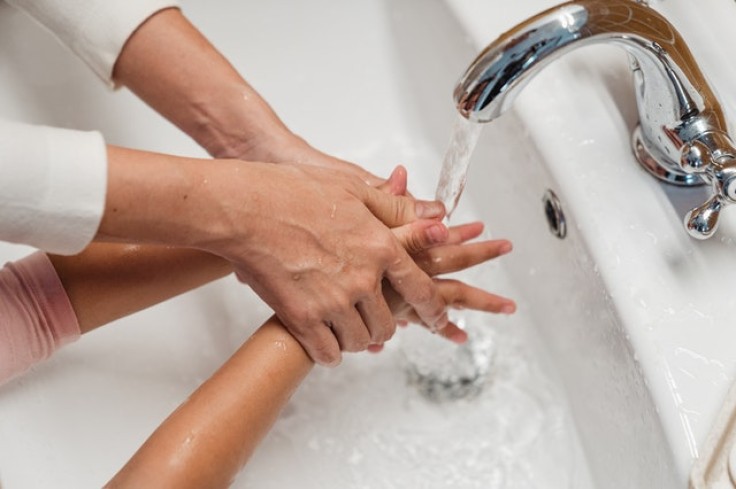
Hand-hygiene in the fight against diseases, particularly during the pandemic, is crucial for public health. More than ever, people are urged regularly to wash their hands with soap and water so that coronavirus does not spread.
Thus, for this school reopening, officials say children should wash hands, which leads to excessive handwashing in school and could damage children's skin.
The skin is a protective shield against germs. Its outermost layer has wax and oils to keep your skin moisture. When washing, soap and constant scrubbing could irritate the skin barrier and lead to natural oil loss.
Over time, the skin could dry up and develop dermatitis, an inflammation that could appear red, itchy, cracking, or wretched.
Many soaps contain dermatitis-related ingredients. This is particularly an issue for people, especially children, with sensitive skin, eczema, or an allergic cosmetics history. And by further washing, sanitizing, or disinfecting, the part of the skin that covers skin may be damaged.
According to the British Skin Foundation, nearly one-quarter of children suffer from eczema due to increased pandemic handwashing.
The foundation's consultant dermatologist, Dr. Mary Sommerlad, has stated children are more likely to be affected by eczema because of a lower skin barrier.
"Soap and water irritation can exacerbate existing eczema, or first-time trigger contact eczema irritation," said Dr. Sommerlad. "This is because a frequent washing of soap disturbs the skin barrier."
Professor and Chairman at the Dermatology department at UC Davis Health, Samuel Hwang, shares excellent practices to prevent and treat excessive handwashing in school.
Minimize the impact of frequent hand washing on the skin:
- Wash hands with soap and water following government guidance. For people with dry and crack smiths, this may not be easy, but we advise you to follow government guidelines as much as possible.
- After washing, dry your hands entirely but not by rubbing. Pat dry.
- Hydrants are an essential part of hand dermatitis treatment. The damaged outer skin is repaired, and moisture in it is locked to become soft again. After handwashing, repeatedly during the day and when the skin is dry, children should use it generously.
- Overnight hydrating treatments are helpful to some people. Apply a significant layer of simple humidification before going to bed, place a couple of clean gloves of cotton on and leave overnight. Do wear hands that provide a barrier to the skin if the hands come into contact with water or the detergent, but not if the hands are used to wash or clean body parts like shampooing or cleansing products.
Meanwhile, Dr. Sommerland recommends the following for children with sensitive skin.
- Apply a non-fragrant moisturizing cream after every handwash to children who are susceptible to hand eczema.
- Ensure the hands are rinsed and dried correctly and that there is no soap on the skin left after washing.
- Apply all the hands of the hydrating agent. If you are still holding your hands after using a moisturizer, your child may need a more focused treatment with your GP.
- For hand eczema in children, your GP may recommend that you use topical steroids and other anti-inflammatory agents.